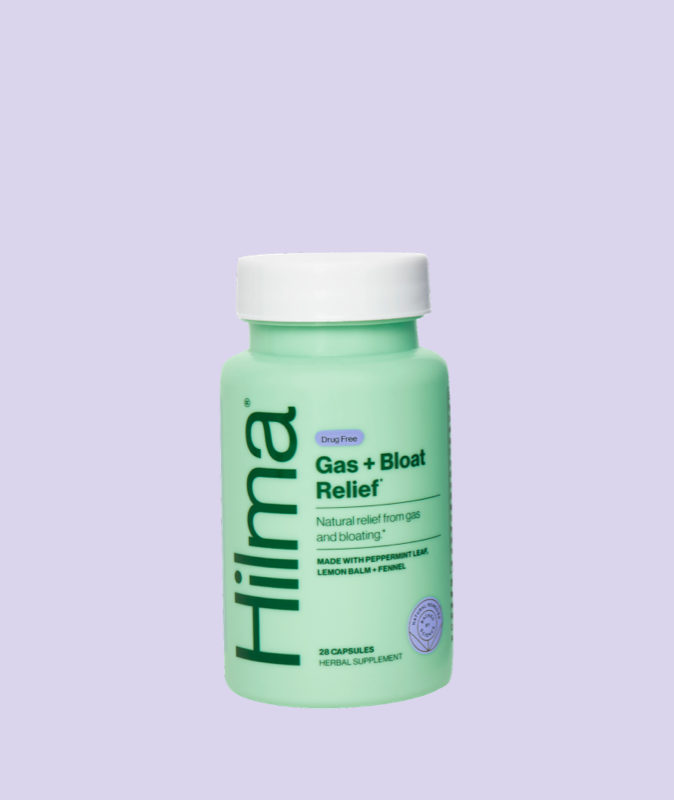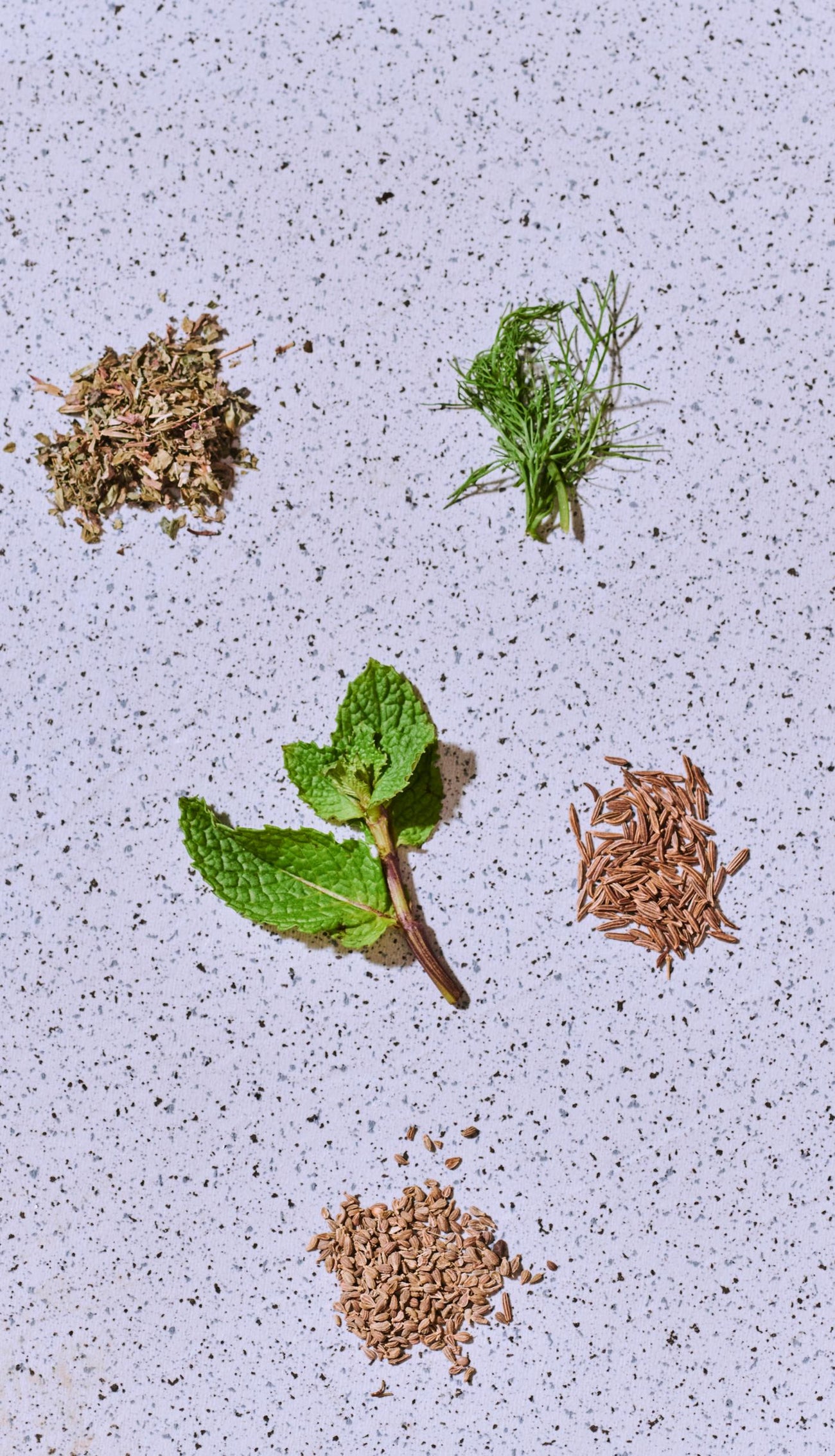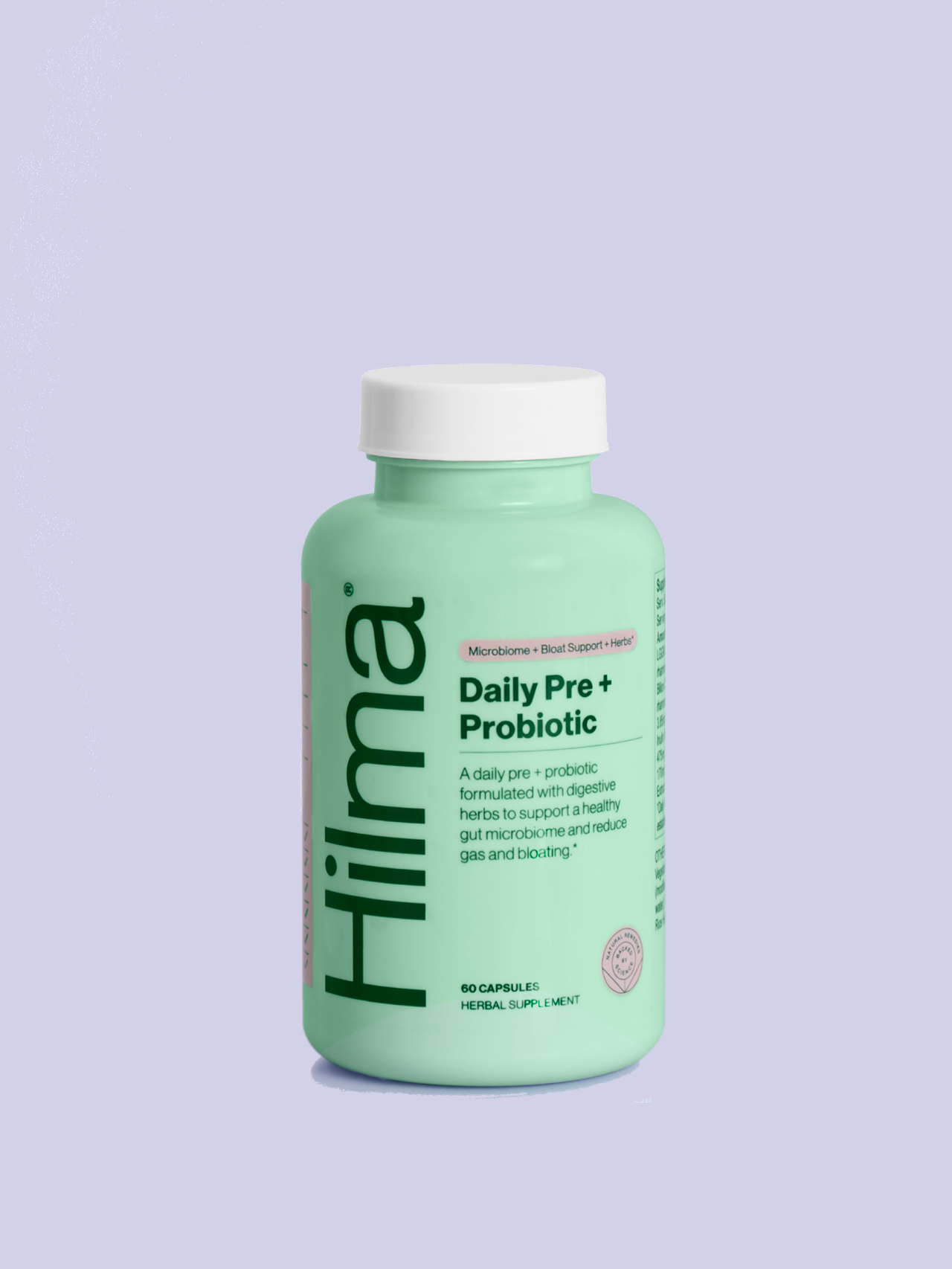
Have you ever noticed that right before your period starts, your body seems to puff up? You're not alone.
Many women experience premenstrual bloating as part of their menstrual cycle — a common but annoying symptom that can make your jeans feel a size too small overnight. But why does this happen, and what can you do about it?
This article dives into the what, why, and how of premenstrual bloating, offering insights and natural remedies to help you manage and reduce this monthly discomfort.
What Is Premenstrual Bloating?
Premenstrual bloating isn't just your typical day-after-a-big-meal feeling. It's a specific type of fluid retention and swelling that many women experience in the days leading up to their menstruation.
Contrary to common belief, premenstrual bloating isn't directly about weight gain or permanent body changes — it's about how your body responds to the natural fluctuations of hormones throughout your menstrual cycle.
This bloating is tied closely to the hormones progesterone and estrogen. Right after ovulation, if the egg isn't fertilized, these hormone levels shift dramatically to prepare your body for menstruation.
This shift can lead to water retention, making you feel bloated. It's a temporary state, often resolving as soon as your period begins, but it can be quite uncomfortable and sometimes distressing while it lasts.
What Are Common Symptoms of Premenstrual Bloating?
Premenstrual bloating can manifest in several ways, each affecting women differently. While the general symptom is an increased feeling of fullness and tightness, several specific signs can help you identify this as a part of your premenstrual syndrome (PMS).
Abdominal Swelling
One of the most noticeable symptoms of premenstrual bloating is abdominal swelling. This isn't just a feeling; you might actually see that your abdomen appears larger. The bloating can cause your stomach to feel tight and distended, which is often noticeable in the fit of your clothes, particularly around the waist.
Feelings of Weight Gain
Although the bloating before your period might not translate to actual long-term weight gain, it can certainly feel like it. Many women report feeling heavier and more cumbersome in the days leading up to their period, even if the scale doesn’t show a significant change. This sensation is primarily due to water retention and the temporary increase in fluid volume.
Food Cravings
Cravings for specific foods, especially sweets or carbohydrates, are common symptoms associated with premenstrual bloating. These cravings can lead to overeating, which might exacerbate the bloating and discomfort. It's believed that these cravings are linked to fluctuations in hormones and blood sugar levels during the menstrual cycle.
Fluctuations in Blood Sugar Levels
Hormonal changes during your cycle can also cause your blood sugar levels to fluctuate. In the days leading up to a period, sugary food may cause more of a glucose spike than during other parts of the cycle.
This spike can cause more cravings and energy dips. These changes can impact your energy levels and mood and contribute to your cravings for sugary or starchy foods. Managing these blood sugar fluctuations is key to controlling both your appetite and bloating symptoms.
What Are the Common Causes of Premenstrual Bloating?
While hormonal fluctuations play a central role in premenstrual bloating, there are several other factors that contribute to this uncomfortable condition. Understanding these can help you tailor your approach to managing and minimizing bloating each month.
Hormonal Shifts
The hormonal landscape of your body changes significantly in the days leading up to your period. These shifts directly influence how your body handles fluids and can exacerbate feelings of bloating. Progesterone tends to encourage the body to hold onto water, contributing to a bloated feeling.
Fluid Dynamics
Aside from the hormonal effects, the way your body manages fluids during this time can lead to bloating. As hormone levels rise and fall, so does your body’s tendency to retain more fluid than usual, contributing directly to the feeling and appearance of bloating.
Dietary Influences
What you eat plays a significant role in how bloated you feel. High salt intake, for example, can cause your body to retain more water, leading to increased bloating. Additionally, consuming large amounts of carbohydrates can cause rapid spikes in blood sugar, which may be followed by rapid increases in insulin and subsequent water retention.
Activity Levels
Physical activity — or the lack thereof — can also influence how your body experiences premenstrual bloating. Regular exercise helps keep your fluids moving and can reduce water retention. On the other hand, a sedentary lifestyle may exacerbate bloating symptoms.
Gut Health
Your digestive system's health and how it functions during your menstrual cycle can significantly impact bloating. Changes in gut motility during the menstrual cycle can slow down digestion, leading to a backup in the digestive tract and causing uncomfortable bloating.
What Are Natural Remedies for Premenstrual Bloating?
Tackling premenstrual bloating doesn't always require medical intervention. Often, simple natural remedies can provide significant relief.
Here’s how you can naturally reduce bloating and feel more comfortable during that time of the month:
Avoid Salty Foods
Reducing your salt intake is one of the easiest ways to reduce water retention and bloating. High salt levels cause your body to hold onto fluids, so cutting back on salty snacks and processed foods can help alleviate that puffy feeling.
Incorporate Potassium-Rich Foods
Eating foods high in potassium can help balance out sodium levels and increase urine production, which can help reduce water retention. Bananas, sweet potatoes, and leafy greens are all excellent sources of potassium and can help ease bloating.
Consider Natural Diuretics
Natural diuretics like cucumber, watermelon, and celery can increase urine output and flush out excess salt and fluid. Incorporating these foods into your diet in the days leading up to your period can help manage bloating.
Add Probiotics to Your Diet
Probiotics help maintain a healthy gut by balancing your intestinal flora, which can support digestion and soothe gas and bloating. Including probiotic-rich foods like yogurt and kefir or a supplement can maintain digestive health.
To further support your gut health, consider our Daily Pre + Probiotic + Herbs, which combines beneficial bacteria with herbs known to soothe the digestive system, enhancing your overall wellness and easing premenstrual discomfort.
Drop Carbohydrates
Reducing your intake of simple carbohydrates can prevent the spikes in blood sugar and insulin that lead to fluid retention and bloating. Focus on whole grains and complex carbohydrates that provide steady energy without the bloat.
Supplement Magnesium
Magnesium has been shown to help alleviate water retention and ease premenstrual symptoms, including bloating. Consider adding a magnesium supplement to your routine, especially in the second half of your cycle, to help mitigate bloating.
Engage in Physical Activity
Regular exercise, particularly aerobic activities like walking, cycling, or swimming, can help keep your digestive system moving and reduce symptoms of bloating. It also stimulates lymph flow and helps reduce fluid buildup.
Drink Plenty of Water
It might seem counterintuitive, but drinking more water can actually help reduce bloating. Staying well-hydrated helps flush your system and reduces water retention and bloating.
Supplement Wisely
When natural adjustments aren't quite enough, supplements can offer additional support. Our Gas + Bloat Relief is specially formulated with a blend of herbs that work to soothe gas and bloating effectively, providing relief when you need it most.
Practice Stress Management
Stress can exacerbate gastrointestinal symptoms, including bloating. Techniques such as yoga, meditation, and deep breathing can help manage stress levels and may reduce the severity of premenstrual bloating.
When To Go to a Gynecologist
While premenstrual bloating is usually manageable with lifestyle changes and natural remedies, there are times when it's wise to consult a healthcare provider. If you experience severe or persistent period bloating that disrupts your daily life, it may be a sign of underlying health conditions, such as irritable bowel syndrome (IBS), hormonal imbalances, or other gynecological issues.
Additionally, if you notice changes in your menstrual cycle or if the bloating is accompanied by significant pain or other symptoms like drastic weight changes or abnormal bleeding, it’s crucial to visit a gynecologist. These professionals can provide tailored advice, potentially including dietary recommendations, supplements, or medication to help manage your symptoms more effectively.
At Hilma, we're dedicated to supporting women's health with insights and natural solutions that address not just the symptoms but the root causes of premenstrual challenges. Remember, you’re not alone in this — millions of women experience bloating, and with the right strategies, you can navigate these days with greater ease.
For more support and natural remedies, turn to Hilma, where we prioritize your wellness every day of the month.
This information is for educational purposes only and should not be taken as medical advice. Please consult a physician before treating any disorder.
Sources:
Water retention: Relieve this premenstrual symptom | Mayo Clinic
Premenstrual Syndrome (PMS): Causes, Symptoms & Treatment | Cleveland Clinic
Fluid Retention over the Menstrual Cycle | PMC
Feel Bloated? 5 Odd Reasons for Your Stomach Pain | Cleveland Clinic
13 Foods That Reduce Bloating | Beaufort Memorial
Be Well: The Hormone-Digestion Connection | Northwestern Health Sciences University


